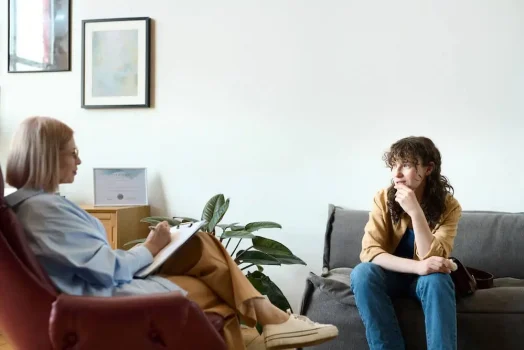Therapy and counseling play pivotal roles in supporting individuals on the neurodivergent spectrum. Neurodivergent individuals, including those with conditions such as autism, ADHD, and dyslexia, may experience unique challenges in communication that can impact their therapeutic experience in a variety of ways. To ensure that individualized needs are met and the most efficient treatment is prescribed, both therapists and neurodivergent individuals need to use effective communication strategies in therapy and counseling settings.
Neurodivergent individuals should be given the opportunity to express their thoughts and feelings in their preferred way, whether through words, drawings, or other nonverbal methods. Additionally, therapists should be open to feedback and open to adjusting their approach as needed.
Understanding Neurodivergence and Communication Challenges
Neurodivergent individuals have diverse neurological structures and ways of processing information, leading to differences in perception, communication, and social interaction. Communication challenges for neurodivergent individuals may include:
- Difficulty with Non-Verbal Cues: Neurodivergent individuals may struggle to interpret non-verbal cues, such as facial expressions and body language, which are integral to typical communication.
- Sensory Sensitivities: Sensory sensitivities can impact the ability to filter and process auditory, visual, or tactile information, leading to difficulties in maintaining focus during conversations.
- Literal Thinking: Some neurodivergent individuals may engage in literal thinking, interpreting language in a concrete manner. Metaphors, idioms, and abstract concepts can be challenging to grasp.
Practical Tips for Improved Communication for Neurodivergent Individuals:
1. Self-Advocacy:
- Express Your Preferences: Whenever possible, share your communication preferences, sensory sensitivities, and any specific needs you may have during therapy sessions.
- Be Open with Your Therapist: If there’s something you’re self-aware about, help your therapist gain insights into your individual neurodivergent characteristics and how they influence your unique way of communicating.
2. Visual Tools and Supports:
- Bring Visual Aids: If there’s a specific topic you’re struggling to discuss, consider using visual tools like charts or diagrams to complement verbal communication—even a simple drawing can help!
- Request Visual Supports: Ask your therapist to incorporate visual aids to enhance understanding and engagement.
3. Structured Communication:
- Define Session Structure: Collaborate with your therapist to establish a session structure that suits your needs, including clear agendas and planned breaks.
- Discuss Expectations: Set expectations for the flow of sessions to create a sense of predictability.
4. Concrete Language:
- Speak Clearly: Use straightforward language, and don’t hesitate to ask for clarification if something is unclear.
- Encourage Literal Communication: If you prefer literal communication or to have things explained in a way that makes more sense to you, communicate this to your therapist, fostering a more direct understanding.
5. Written Communication:
- Consider Writing: If verbal communication is challenging, explore written communication through emails or journaling.
- Bring Notes or Questions: Feel free to bring written notes or questions to guide and structure your discussions.
6. Establishing Communication Signals:
- Signal for Breaks: Establish clear signals or cues for when you need breaks during sessions.
- Create a Feedback System: Set up a feedback system to express how different communication approaches are working for you.
7. Collaborative Goal Setting:
- Actively Participate: Engage actively in goal-setting discussions, sharing your aspirations and collaborating on achievable objectives.
- Regularly Review Goals: Periodically review and adjust your goals based on your progress and evolving needs.
8. Involve Supportive Figures:
- Bring a Support Person: If comfortable, involve a trusted family member or friend in sessions to provide additional support.
- Educate Your Support Network: Encourage your therapist to educate your support network about your neurodivergent traits and communication preferences if you’re struggling in your daily life.
Effectively communicating with therapists and counselors is a collaborative effort, and these practical tips aim to empower neurodivergent individuals in their journey toward improved well-being. Your unique preferences and insights are valuable, and by actively participating in your therapeutic experience, you can help shape a supportive and inclusive environment that meets your needs. Remember, your voice matters, and enhancing communication is a powerful tool on your path to self-discovery and growth.
Empowering Through Self-Advocacy and Effective Communication at The Life Adjustment Team
At The Life Adjustment Team (LAT), our commitment goes beyond traditional therapeutic approaches. We understand the significance of empowering our clients to become effective self-advocates and communicators. Through a tailored blend of cognitive behavioral therapy (CBT) and skills training, we equip individuals with the tools they need to navigate the complexities of their neurodivergent journey.
If you or a loved one are struggling with a mental health condition or cognitive disorder, reach out to LAT today to see if our programs are right for you.








